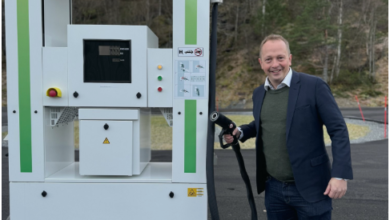Hyzon, Sha Steel to trial hydrogen trucks in China; Goodyear, Sarta to collaborate
The collaboration will provide valuable data on ways tires can impact public transportation safety, sustainability, and efficiency.

The Goodyear Tire & Rubber Company and the Stark Area Regional Transit Authority (SARTA) will collaborate to test intelligent tire sensors and prototype tires on SARTA’s fleet of diesel and zero-emission hydrogen fuel cell-powered (HFC) buses.
The intelligent tires leverage Goodyear’s TPMS Plus on-vehicle sensors to send real-time data on tire conditions to the Goodyear SightLine mobility cloud. The data would be quickly analysed to deliver actionable insights on tire performance and potential vehicle issues so operators can seek proactive maintenance. The tests will help Goodyear evaluate the performance of TPMS Plus powered by Goodyear SightLine on HFC buses in daily public transit service while also helping SARTA lower their operational costs, reduce fleet downtime and increase environmental benefits. Both tests are taking place on 10 SARTA vehicles in daily revenue service, including five diesel and five HFC buses.
In a separate development, Hyzon Motors Inc. Zhangjiagang Haili Terminal Co., Ltd. (a subsidiary of Sha Steel Group) and Guofu HEE have signed up for a hydrogen fuel cell heavy-duty trucks demonstration project in China.
Under the agreement, Hyzon will supply 49-ton hydrogen fuel cell heavy-duty trucks for a 60-day trial at Sha Steel Group’s operating base in Port of Zhangjiagang. Guofu HEE (local hydrogen equipment and storage systems company) will provide hydrogen through its hydrogen refuelling station in Zhangjiagang. The hydrogen-powered vehicles will provide transportation services from Sha Steel’s plant to the port.
The three parties expect to expand their business collaboration to accelerate the implementation of fuel cell electric vehicles, hydrogen refuelling stations, and hydrogen production across the steel transportation industry. Through the partnership, the companies plan to localise the production of fuel cell electric vehicle core components, reducing manufacturing and distribution costs.
